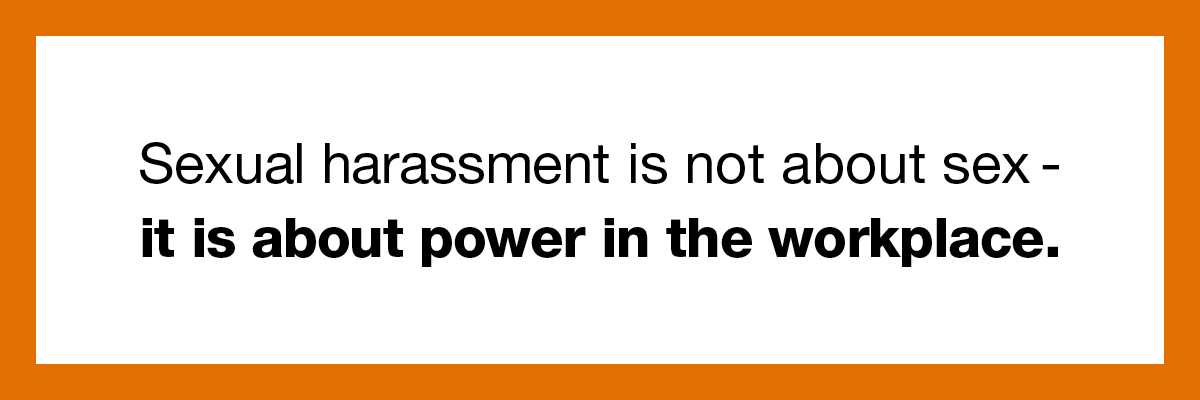Vermont’s law defines sexual harassment as unwelcome sexual advances, requests for sexual favors, and other verbal or physical conduct of a sexual nature when
- submission to such conduct is made either explicitly or implicitly a term or condition of an individual's employment,
- submission to or rejection of such conduct by an individual is used as the basis for employment decisions affecting such individual, or
- such conduct has the purpose or effect of creating an intimidating, hostile, or offensive working environment.
See 21 V.S.A. section 495d(13).
Unlawful sexual harassment can take one of two forms - either quid pro quo harassment, or a hostile work environment.
- The Latin term, “quid pro quo” literally mean “this for that.” Quid pro quo sexual harassment occurs when an employment decision is based on someone’s willingness to endure sexual conduct, advances, or requests for sexual favors. A single instance of quid pro quo sexual harassment is illegal. For example:
- A supervisor or person of higher rank implies an employee must perform sexual favors to keep their job
- A supervisor offers a promotion or pay raise to someone who works for them in exchange for a sexual favor
- In the video below, part of a series from the Ad Council, a boss makes sexual advances towards a new employee, while talking to her about her role in the company.
The Boss
- More often, employees complain of experiencing a hostile work environment based on sex. Examples of when work-related harassment can create a hostile work environment when a person of any gender identity or sexual orientation include:
- Has to endure come-ons, unwelcomed sexual remarks, or sex-based behavior as part of their job or
- Is targeted with harassing behavior because of their sex, or based on conforming or not conforming to sex-based stereotypes, or
- Feels intimidated, offended, scared, unsafe, or demeaned on the basis of their sex or based on sex-based stereotypes.
A hostile work environment is usually a situation that develops over time. However, a single serious incident, such as workplace sexual assault, can create an unlawful hostile work environment.

Any person of any gender can experience unlawful sexual harassment, even someone who is not the target of harassing behavior. Sexual harassment can be about sexual attraction, but it doesn’t have to be. It includes any harassment that is based on sex or based on someone’s conformance or non-conformance with sex-based stereotypes. Sexual harassment can occur between members of the same sex and not be related to sexual interest or attraction.
Addressing Sexual Harassment in the Workplace Guidebook
 Our Workplaces for All Addressing Sexual Harassment in the Workplace Guidebook provides in depth information and resources on this topic.
Our Workplaces for All Addressing Sexual Harassment in the Workplace Guidebook provides in depth information and resources on this topic.


